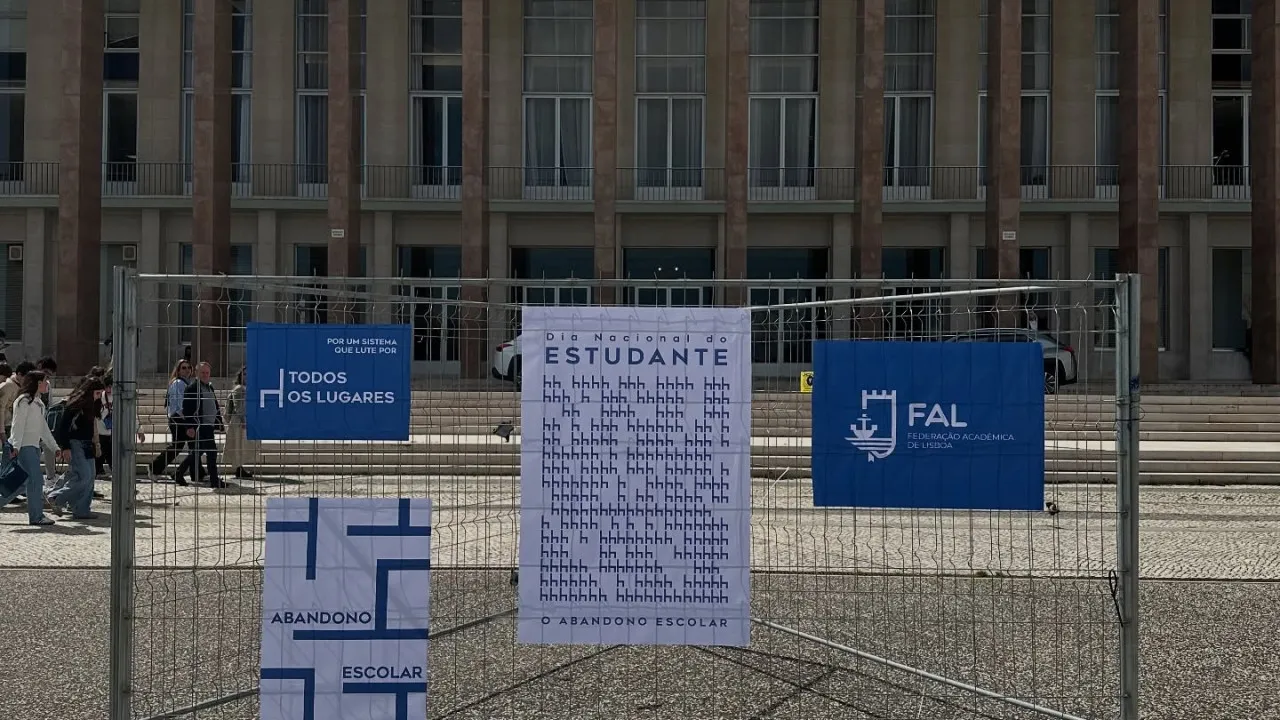
The Federation of Academic Leaders (FAL) has emphasized the “urgent need for measures” to ensure the enhancement of social support for students and the strategic value of higher education in Portugal, according to a statement to Lusa news agency.
“The recently revealed results from the first phase of the national higher education admission process for the academic year 2025/2026 indicate a trend that should concern all of Portuguese society,” the organization warned.
The academic group highlighted that only 48,718 students applied this time, a decrease of 9,583 compared to 2024, and 43,899 new students were placed, marking a 16.4% drop from last year and the lowest figure in the last decade.
Moreover, 11,513 places remained unfilled, more than twice the number recorded in 2024, highlighting a significant imbalance between educational offerings and the actual demand among young people.
The FAL noted that “the figures are clear and widespread: universities in Lisbon (-293 placements), Porto (-47), Coimbra (-188), and Minho (-280) recorded significant declines, while polytechnic institutes like Santarém (-43.1%), Guarda (-46.7%), and Tomar (-44.8%) saw almost half of their spots go unfilled.”
“Alongside this general decline, there was a marked drop in strategic areas such as engineering and digital skills, with thousands of places remaining unfilled. This is not just a statistical issue; it is a portrait of a country losing its ability to attract and educate its youth,” it lamented.
The Federation of Academic Leaders attributes this situation to four factors: demographic decline reducing the number of potential candidates year by year, unbearable academic living costs, especially housing, driving thousands away from higher education, the increasing migration of young Portuguese seeking future opportunities abroad, and changes in admission requirements under the national competition.
“Concrete actions are urgently needed to reverse this trajectory. Primarily, there needs to be a structural enhancement of social support to ensure no young person is barred from studying due to financial reasons,” it stated.
The FAL believes this involves “accelerating investment in public university residences, broadening scholarship eligibility criteria, and ensuring the process is swift and predictable.”
Moreover, it deemed it “crucial to adjust the admission model, making it more transparent, fair, and aligned with the reality of new generations, avoiding the unnecessary exclusion of capable candidates who currently find no entry routes.”
“It is essential to value the polytechnic and university network in inland regions by offering incentives for attendance and implementing territorial development policies that create attractive living conditions for students and young graduates,” it recommended.
According to FAL, Portugal must also “focus on a genuine internationalization strategy, not only to attract foreign students but also to retain Portuguese students who currently opt to study abroad.”
“Each unfilled spot represents a lost opportunity, each young person not continuing higher education is a wasted talent, and each student leaving the country without plans to return is a loss for the nation’s future,” the student organization emphasized.




